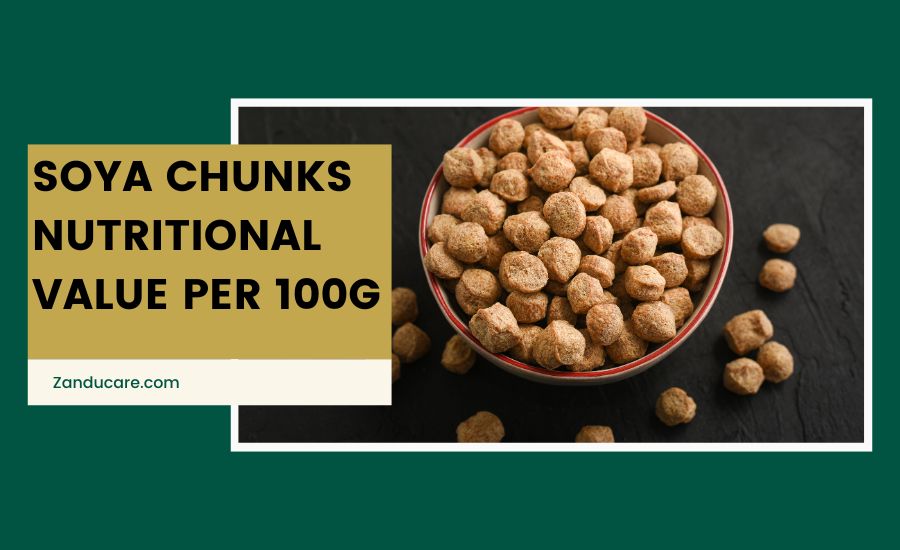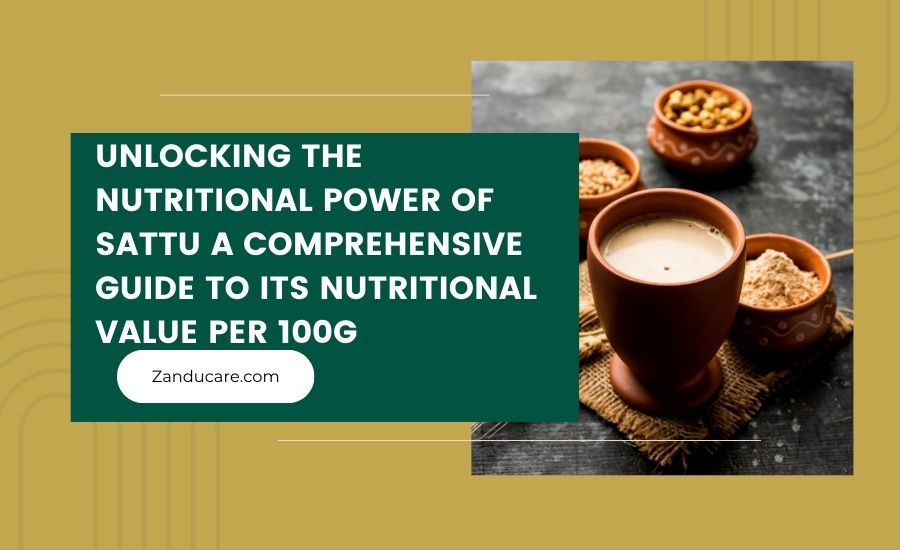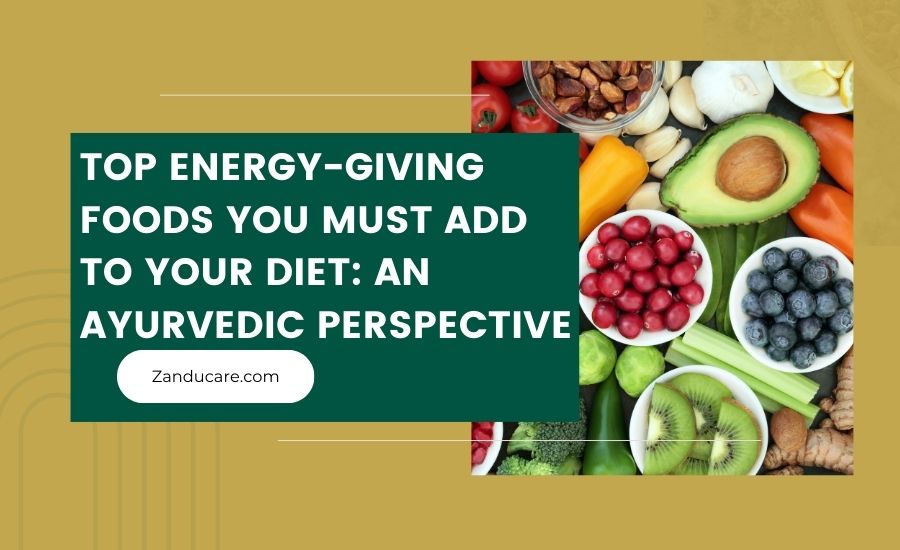
Soya Chunks Nutritional Value Per 100g: Protein & Calories
Soya chunks, often hailed as "vegetarian meat," have become a staple ingredient in households worldwide. These textured vegetable proteins are derived by extracting oil from defatted soybeans, leaving a nourishing flour subsequently moulded into chunks. For vegetarians and vegans, soya chunks exceptionally substitute meat, boasting balanced protein and crucial nutrients.
Understanding the Soya chunks' nutritional value per 100g is vital, especially for meeting the nutritional demands of those following plant-based diets. So, let's begin with more information about this item's nutritional value.
|
Did you know?
|
What are Soya chunks?

Soya chunks, or Textured Vegetable Protein (TVP), are a byproduct of soybeans. Soybeans are oil-extracted, and then what is left of the bean(soy protein) is processed into fibrous chunks. They soften when hydrated and are springy in texture, often used in vegan or vegetarian recipes.
Soya chunks were created in the mid-20th century as a meat substitute during World War II. Since then, they have become popular worldwide, particularly in regions with high vegetarian populations like India.
Soya chunks are so versatile that they can be used in many recipes. They can be added to curries, stir-fries, soups, and more. Because they can take on other flavours, this food pairs well with savoury and sweet dishes.
Nutritional value of Soya Chunks per 100g
We must know the nutritional value of Soya Chunks before consuming them for good health.
Macronutrients
- Protein content (approx. 52g): Soya chunks have a significant protein content, which is why they can be a perfect option for muscle building and repair.
- Carbohydrates (approx. 33g): They contribute a lot of energy, mostly from complex carbohydrates.
- Fats (approx. 0.5g): Soya chunks are low in fat, which is good for heart health and weight management.
- Fibre (approx. 13g): The high content of food fibre facilitates better digestion.
Micronutrients
- Vitamins: Soya chunks are abundant in B-complex vitamins, which are essential for energy production and metabolic function. They also contain vitamin K, which is essential for blood clotting and bone health.
- Minerals: Soya chunks are a fantastic source of bone health, with 350 mg calcium and 15 mg iron. They also contain minerals that support red blood cell production and muscle function.
Health benefits of Soya Chunks
Check out the advantages provided by every 100 g serving of Soya Chunks:
Muscle building and repair

Soya Chunks are a protein powerhouse essential for muscle growth and repair. Protein acts as the building blocks for muscles, and consuming adequate amounts is crucial for anyone involved in regular physical activity or strength training. Soya chunks provide a plant-based alternative to animal proteins, making them a top choice for vegetarians and vegans seeking nutrition.
Weight management
The substantial fibre content in Soya Chunks curbs calorie intake. Fiber-wealthy foods help you feel full for longer, preventing overeating and aiding in weight management. Additionally, the minimal fat content makes Soya Chunks suitable for those willing to maintain or lose weight without sacrificing nutrition.
Lowering cholesterol levels.
Research has shown that Soya Chunks can help lower cholesterol levels, supporting heart health. The isoflavones in soy can reduce harmful LDL cholesterol and boost beneficial HDL cholesterol. Decreasing cholesterol levels cuts the risk of cardiovascular diseases like heart attacks and strokes.
Enhances digestive health
The dietary fibre in Soya Chunks plays a vital role in enhancing digestive wellness. It helps with regular bowel movements, prevents constipation, and supports a healthy gut microbiome. A sound digestive system is essential for overall welfare, as it ensures the efficient absorption of nutrients and eliminates waste products.
Beneficial for bone health
With approximately 350mg of calcium per 100g, Soya Chunks help maintain strong bones and prevent conditions such as osteoporosis. Additionally, magnesium supports bone structural development and helps muscles and nerves function properly.
Potential drawbacks and considerations
Soybeans contain phytates, a compound that can inhibit the absorption of certain minerals. However, the effect is insignificant, and the compound can be easily destroyed during cooking. Besides, since Soya Chunks are made from soy, people allergic to this product should be cautious. Symptoms may vary from mild discomfort in the gastrointestinal tract to severe allergic reactions. While Soya Chunks are nutritious, one should not forget about moderation.
Also, check:
- Nutritional value of sattu
- Nutritional value of chana dal
- Nutritional value of moong sprouts
- Nutritional value of Dalia
Ayurvedic perspective on Soya Chunks

In Ayurveda, the traditional Indian system of medicine, diet is crucial. Generally speaking, foods are classified based on their effect on the body's three doshas: Vata, Pitta, And Kapha. As for Soya Chunks, they can balance Pitta and Kapha. Besides, Soya Chunks are abundant in protein and fibre, so they may aggravate Vata if consumed in excess. In fact, Soya Chunks are better to consume occasionally spiced with cumin, ginger, and turmeric. These spices enhance the taste of Soya Chunks and make them easily digestible.
Comparison with other protein sources
|
Nutrient |
Soya Chunks (100 g) |
Paneer (100 g) |
Lentils (100g) |
Eggs (100g) |
Chicken Breast (100g) |
|
Source |
Plant-based |
Dairy |
Plant-based |
Animal-based |
Animal-based |
|
Protein |
52 g |
18 g |
9 g |
13 g |
27 g |
|
Carbohydrates |
33 g |
20 g |
0.4 g |
11 g |
14 g |
|
Fats |
0.5 g |
1.2 g |
20 g |
1.1 g |
0 g |
|
Fibre |
13 g |
0 g |
8 g |
0 g |
0 g |
|
Minerals |
Calcium, iron |
Calcium, phosphate |
Iron, magnesium |
Iron, phosphorous |
Iron, phosphorous |
|
Vitamins |
B-complex and K |
A, B12, and D |
B1 and B6 |
A, B2, B12, and D |
B3, B6, and B12 |
Soya Chunks offer a notably superior protein content to other plant and animal proteins. It also contains less fat and is an exceptional choice for individuals searching for a lean protein source. Additionally, they are abundant in dietary fibre and crucial minerals like calcium and iron, contributing to their nutritious worth. Moreover, their high protein and fibre content helps promote fullness and support weight management goals.
How to incorporate Soya Chunks into your diet?
You can prepare various recipes with Soya Chunks. Before cooking, soak them in water for 15 minutes to soften and expand them. After that, you can boil, fry, or bake them according to the recipe. Some popular dishes to prepare with Soya Chunks are as follows:
- Soya chunk curry: It is a flavourful dish made with Soya Chunks, tomatoes, onions, and spices.
- Pulao is a rice dish with Soya Chunks, vegetables, and aromatic spices.
- Stir-fried mixed veg is a quick and easy recipe with stir-fried Soya Chunks, vegetables, and soy sauce.
Conclusion
Soya Chunks are an excellent addition to any diet because they are a highly nutritious and sustainable protein source. They have protein and fibre, which means many health benefits, from muscle growth to increased metabolism. Soya chunks are safe to eat unless the person has an allergic reaction. Even Ayurveda labels it safe because it can balance the different doshas in the body when consumed in moderation. So, using them as a normal diet should be considered.
FAQs:
1. What is the protein content in Soya Chunks per 100g?
Every 100 g of Soya Chunks will likely contain 52 g of protein. So, it is an extremely rich source of protein.
2. Are Soya Chunks good for weight loss?
Yes, the high fibre content in Soya Chunks helps to induce fullness. This results in lower calorie intake and weight management.
3. How do Soya Chunks compare to protein sources like tofu and paneer?
Soya Chunks have higher protein and lower fat content than tofu and paneer, making them an excellent choice for lean protein.
4. Can soya chunks cause allergies?
Some people might be allergic to soya chunks. Symptoms can include mild discomfort and other severe effects.
5. What are the positive benefits of soya chunks?
There are many health benefits if soya chunks are included in one's diet, such as muscle build-up, weight management, a healthier heart, improved digestion, and stronger bones.
6. Are there any negative impacts of eating soya chunks?
Soya chunks should be consumed in moderation to avoid digestive disorders. People who are allergic to soya beans should entirely refrain from consuming them.
7. How can I include soya chunks in my daily diet?
You can try various recipes with soya chunks and make them part of your daily diet. For instance, you can make curries or pulao. You can also stir-fry them with sauces and spices.
8. What does Ayurveda say about consuming soya chunks?
In Ayurveda, soya chunks prepared with proper spices and ingredients can balance the doshas. They are beneficial for Kapha and Pitta, but they can aggravate Vata when consumed in excess.
References:
- Soya chunks are a powerhouse of protein, essential for muscle growth and repair [https://biogecko.co.nz/].
- Additionally, the minimal fat content makes soya chunks a suitable option for those willing to maintain or lose weight without sacrificing nutrition [https://www.ncbi.nlm.nih.gov/].
- Research has shown soya chunks can help lower cholesterol levels, thereby supporting heart health [https://www.ncbi.nlm.nih.gov/].
- The dietary fibre in soya chunks plays a vital role in enhancing digestive wellness [https://www.sciencedirect.com/].






Leave a comment
This site is protected by hCaptcha and the hCaptcha Privacy Policy and Terms of Service apply.